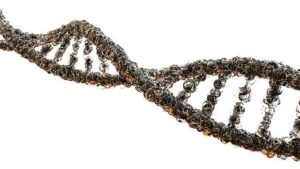Our research update today involves a published paper in the American Journal of Clinical Nutrition that appeared in December of 2016. It is a good reminder of how small changes in nutritional status can have an impact on risk of cancer and the aging process itself.
Do bad genes cause cancer?
We tend to think that inheriting bad genes are the main thing that puts us at risk for cancer. But that is not true. Only about 15-20% of all cancers are linked to inheriting bad genes. Most cancer occurs from the result of gene mutations that occur during the course of everyday life.
What is becoming very clear is that there is a great deal we can do to prevent gene mutations from occurring, thereby significantly reducing our risk of cancer. The way to prevent gene mutations involves multiple strategies, many of which are explained in various sections of the Meschino Wellness Platform.
Which minerals prevent DNA strand break?

One of the nutrients that has emerged as a key player in preventing DNA strand breaks, which can easily lead to gene mutations that cause cancer, is the mineral zinc. Zinc is proven to play a direct role in preventing DNA strand breaks and increasing the action of enzymes that actually repair DNA damage. It also plays an important role in blocking free radical damage to cells by increasing the cell’s antioxidant function.
Together, these effects are linked to cancer prevention, slowing of the cellular aging and decreasing inflammation. Zinc is an essential part of nearly 3,000 different proteins, and it impacts how these proteins regulate every cell in our body.
What clinical nutritional study revealed the level of zinc intake?
The problem is that U.S. studies show that about 12 percent of the population is at risk for zinc deficiency, and perhaps as much as 40% of the elderly population. This is due to inadequate dietary intake of zinc and less absorption of this essential nutrient in the aging process.
The randomized, controlled study, published in the American Journal of Clinical Nutrition, involved 18 men who consumed a diet containing 6 mg of zinc per day for a period of two weeks. This was immediately followed by four weeks whereby the same men consumed a diet containing 10 mg of zinc per day. That’s an increase of just 4 mg of zinc per day from one phase of the study to the next.
But the difference in outcomes was astounding.
Once in the 10 mg of zinc ingestion phase researchers saw a significant reduction in DNA strand breaks in blood leukocytes (white blood cells), as well as increased DNA repair, improved antioxidant defense, and improved immune system function.
All of these biomarkers are associated with a decreased risk of cancer and possibly the development of virulent, life-threatening infection.
Here is my take on this subject. There are many nutrients for which marginal deficiencies are quite common across the population. Zinc is one of them, but many people also ingest suboptimal intakes of:
- Iron
- Vitamin D
- Folic acid
- Calcium
- Vitamin A
- Magnesium
- Vitamin B12( particularly older subjects)
It’s one of the reasons why I think that a well-designed multiple vitamin and mineral should complement a healthy diet. As for zinc, most multiple vitamins contain 12-15 mg of zinc. That is plenty.
Unless your doctor tells you otherwise, there is rarely a reason to supplement doses of zinc that are in addition to what is contained in a well-designed multiple vitamin and mineral supplement, as too much zinc can lead to zinc toxicity and various adverse side effects, including a weakening of your immune system.
I’ve included a link to the research paper and other supporting documents in the text below.
References:
1. Zyba S, Shenvi S, Killillea DW, Holland TC, Kim E et al. A moderate increase in dietary zinc reduces DNA strand breaks in leukocytes and alters plasma proteins without changing plasma zinc concentrations. Am J Clin Nutr. Dec. 21, 2016: http://ajcn.nutrition.org/content/early/2016/12/21/ajcn.116.135327.full.pdf+html
2. https://www.ncbi.nlm.nih.gov/pubmed/19625698
3. https://www.sott.net/article/338837-Zinc-repairs-DNA-and-reduces-oxidative-stress
Eat Smart, Live Well, Look Great!
Dr. James Meschino

